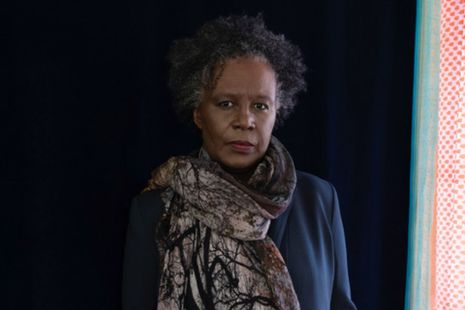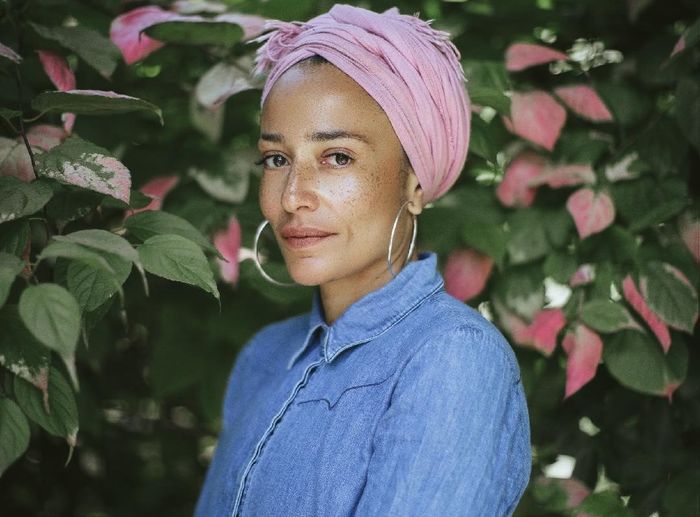Learning how to read culture with Claudia Rankine
Felix Armstrong talks to the American poet about her trailblazing blend of poetry, autobiography, and visual art

Following her Judith E. Wilson lecture at the English Faculty last year, I enjoyed a long, wide-ranging phone conversation with American poet Claudia Rankine, exploring both her work and the culture in which she writes it. With a career spanning five books of poetry, three plays, and numerous essays and video collaborations, Rankine aims to forge new conversations about race in America.
“This idea… that there’s one meaning, and that we need to be guided to it, and it is universal, and it is impartial, and it is the reading, is bullshit.”
When working with students and young people, Rankine sees in them a source of motivation and optimism, though not a concrete one: “I can’t anticipate what your generation will do in response to everything that is occurring or will occur – that uncertainty always has written within it hope.”
Refusing to play ball with the popular assumption that each new generation stands to the left of the one before it, Rankine believes that hope lies in a conscious, humanitarian decision to “choose a more difficult path” and to “take into account more people.” Citing younger voters’ unexpected sway in the 2022 US midterms, she testifies to the potential for the younger generation to be particularly powerful when “nobody’s looking in their direction.”
As Rankine’s work deals with a variety of subjects, it also draws from a variety of modes and disciplines. She often collaborates with her husband, filmmaker John Lucas, to present her work visually, as in her series of Situation video essays. When she tells me about her appreciation for the art gallery format, I suggest that this form of presentation is mirrored in her work, in which self-contained passages are separated by gaps, like the walls between framed paintings. She responds that these pauses offer “time to think, time to wonder, time to consider – if you want to take it.” She expresses her desire to steer clear of “modes of control” as an author: “this idea… that there’s one meaning, and that we need to be guided to it, and it is universal, and it is impartial, and it is the reading, is bullshit.” Instead, Rankine aims to build a capacious “architecture of responses,” with space for “the associative ways in which the mind works.”
“Accountability, not so-called ‘wokeness’, is what societies should be striving towards”
Feeding back into cultural discourse, offering “new ways of talking about race,” is a key motivation for Rankine, and she is keen to stress the ability of art to achieve this: “In fascist countries, often the writers and the artists are under attack… because people know that to show somebody another way to see a thing – once you’ve done that, you can’t undo it.” We talk about the controversy last year surrounding Gary Lineker – his comments condemning the Government’s immigration policy and his subsequent suspension. Rankine says that it is right for people to engage in racial discourse no matter their position in society: “I believe everybody should take it up, because it’s a human issue… it’s all our burden. Part of the way in which control happens is to compartmentalise response.” Accountability, not so-called ‘wokeness’, is what societies should be striving towards, believes Rankine.
In order to create an accountable discourse on race, Rankine says, we must first acknowledge that “whiteness is its own dynamic – it, itself, is constructed.” Recent discourse on whiteness as a tangible identity is advancing these discussions: “Before, you would bring up race and people would start talking about Black people. As if the only ‘raced’ people were Black.” The poet does believe, though, that recent films and television shows, such as White Lotus and Triangle of Sadness, are exhibiting “a new awareness of the privileges of whiteness, and the commitments of whiteness that keep the culture going in ways that subjugate other people and contribute to abject situations.”
“America is ahead in its conversation… and behind in its humanity”
Rankine also references Assembly by Natasha Brown, an author who is herself inspired by Rankine, as an example of art that acknowledges a tension between Blackness and whiteness, that challenges the perception of whiteness as an invisible norm. As we continue to discuss Blackness in recent culture, Rankine brings up Steve McQueen’s Small Axe series, which reaches backwards into history, in contrast to Rankine’s contemporary focus. This is a function of Britain’s race discourse, thinks Rankine, in which “the historical track hasn’t been laid”: the country’s Black history is still denied. “America is ahead in its conversation,” she says, “and behind in its humanity.”
As an English Professor at NYU, Rankine urges her students to be “informed readers, to be critical readers, to be questioning readers,” and this is a skill that must not be confined to the academic sphere. It’s easy, Rankine finds, to be a lazy thinker in today’s culture: “We receive information without questioning it, I think we coast all the time, we are dependent on the first paragraph.”
As with fast fashion, we have become “fast thinkers”, says Rankine. The antidote to this is becoming informed: “the better a reader you are, the easier it is for you to understand why you need to be informed.”
 News / Cambridge students accused of ‘gleeful’ racist hate crime4 December 2025
News / Cambridge students accused of ‘gleeful’ racist hate crime4 December 2025 News / Churchill announces June Event in place of May Ball3 December 2025
News / Churchill announces June Event in place of May Ball3 December 2025 News / Uni redundancy consultation ‘falls short of legal duties’, unions say6 December 2025
News / Uni redundancy consultation ‘falls short of legal duties’, unions say6 December 2025 News / Cambridge cosies up to Reform UK30 November 2025
News / Cambridge cosies up to Reform UK30 November 2025 Comment / Don’t get lost in the Bermuda Triangle of job hunting 24 November 2025
Comment / Don’t get lost in the Bermuda Triangle of job hunting 24 November 2025









